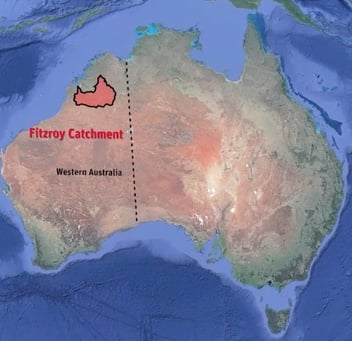Foreign ownership of water infrastructure under increased scrutiny
Foreign investment in Australia’s water infrastructure will come under scrutiny once the Federal Government makes its register of water assets ownership public later this year.
Back in 2016, the Federal Government passed legislation that requires foreigners to inform the Australian Tax Office of any water access entitlements. Since July 2017, the water entitlements register has been collecting this information, and for the first time, will release a report highlighting foreign interest in water assets.
University of Western Australia International Politics Professor Mark Beeson said the report’s findings are likely to reveal China’s increased interest in Australia’s water assets, which he said can be explained by the country’s concerns about climate change and its own water security.
“In China’s case … they do have a much broader sense of what water security looks like and it does include things like economic security and environmental security,” Beeson said.
He added that China’s renewed focus on water security relates to domestic concerns about social unrest due to environmental issues.
“I think with all those things coming together, it’s understandable that they might be interested in securing long-term assets of some sort,” Beeson told the Sydney Morning Herald.
However, Beeson said he doesn’t expect China to import billions of litres of water from Australia anytime soon.
“Ultimately Australia is a sovereign government and if they wanted to at some stage they could just simply take back control of those resources,” Beeson said.
“It wouldn’t be a good look … it would be quite an extreme set of circumstances for that to occur.”
This is only one development in a series of steps the Federal Government has taken recently to more strictly manage ownership of national water assets. In July this year, Home Affairs Minister Peter Dutton was given a ‘last-resort’ power to enable Australian infrastructure operators to improve security and oversight of critical energy, transport and water infrastructure.
A register of almost 165 electricity, gas, water and ports were labelled as critical enough to merit increased scrutiny of asset ownership, access and control.
“While foreign involvement in Australia’s infrastructure and economy is welcomed, it does mean our critical infrastructure assets are potentially more exposed than ever,” Dutton said, in a statement.
Despite these recent developments, Australia’s and China’s water industries have a long history of cooperation and collaboration, particularly in the area of water sensitive urban design. The two industries have also benefited from knowledge sharing in other areas, such as detention basins.

